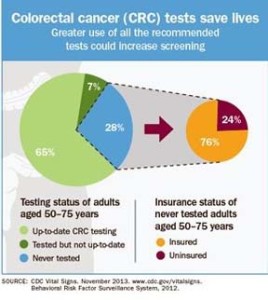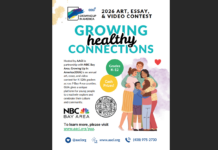
CHICAGO: Colorectal cancer is the 2nd leading cause of death and 3rd most common cancer in the country and it affects men and women of all races and ethnicities equally.
A recent report released by the CDC (Center for Disease Control & Prevention) in August 2015 found no increase in colorectal cancer screening from 2010 to 2013, which was both unexpected and disappointing. Based on data from the 2013 National Health Interview Survey, the report showed that just 58.2% of adults reported being up-to-date with colorectal cancer screening.
Other studies show that up to 65% of adults have been screened appropriately.
“Colorectal cancer screening rates have increased significantly in the past decade, but we still have a long way to go,” says Edwin Chandrasekar, Executive Director at the Asian Health Coalition (AHC), and Deputy Director for the University of Chicago’s Center for Asian Health Equity (CAHE).
“There is strong evidence that routine screening for colorectal cancer reduces mortality in adults aged 50-75. Furthermore, when colorectal cancers are found and treated at an early stage, more than 90% will live more than 5 years. We still lag behind the Healthy People 2020 target of 70.5% of adults being up-to-date with colorectal cancer screening. The status quo must change,” he added.
AHC and CAHE have teamed up on initiatives aimed at improving colorectal cancer screening rates for Asian Americans in the Chicago metropolitan area. Since 2013, the Partnership for Healthier Asians program has been helping to increase colorectal cancer awareness and promote screening targeting low-income Asian immigrant communities by working with community-based organizations.
In recognition of Colon Cancer Awareness Month, the Asian Health Coalition and CAHE has launched a multi-lingual media awareness campaign urging Asian Americans age 50 or over to get screened. The posters are available in 6 languages.
AHC was established in 1996 with a mission to improve the health and wellness of the Asian American community through advocacy, technical assistance, community-based education and research.
Begum Naznnin






